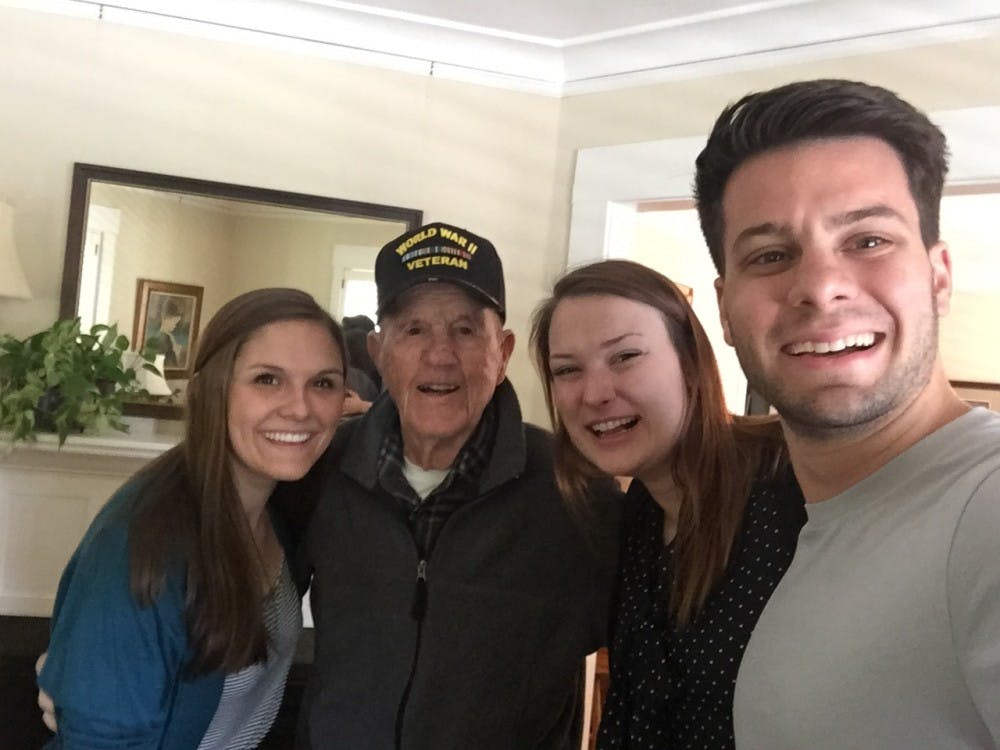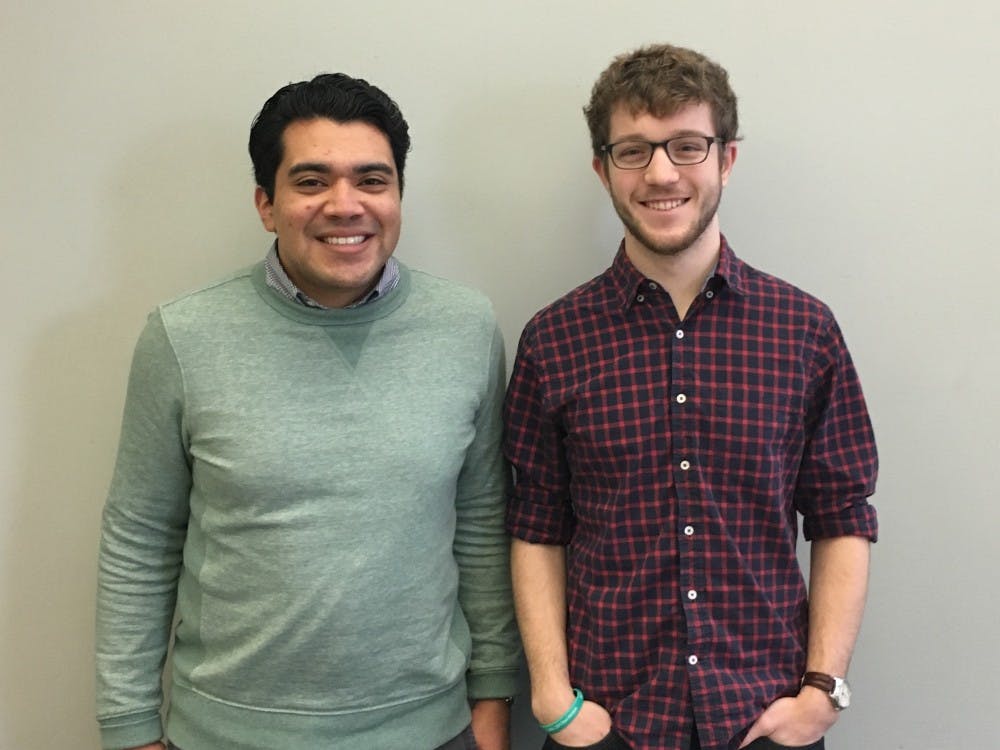By Sarah Hansell, Staff Writer -- hansell14@up.edu
We see ROTC cadets every day, saluting and marching and training in the grass fields, or getting lunch in The Commons in their camouflage uniforms.
Maybe one of them is living down the hall from you. We see them every day but we don't really know what they do or why they do it.
Freshman Cassie Van Lier is one of them. The Air Force ROTC program started out as a scholarship opportunity enabling her to pursue a major in nursing and a minor in Spanish studies, but she now sees it as much more.
"At first I was completely overwhelmed, and I was like, ‘I'm never going to get the hang of this,'" she said. "But as it goes on, you get this sense of pride."
An Air Force ROTC cadet's week is similar to that of any other involved UP student, with a few important differences.
In addition to her six classes a week, Van Lier also has Air Force class and leadership lab on Tuesdays. Together these last about three and a half hours.
Afterwards she attends what the cadets call PT, or physical training, at 6:30 p.m., where she does workouts such as push-ups, sit-ups and running. PT is four times a week, and cadets are required to attend two of those times.
Van Lier has voluntary drill practice directly after that. Tuesday is also the day cadets are required to wear their uniforms.
A cadet isn't necessarily very busy with these requirements, according to Van Lier. But she, along with many other students in ROTC, wanted to do more. So she is in voluntary ROTC clubs and participates in ROTC socials and other events.
Van Lier is also involved in Spaatz Air Corps, named for Gen. Carl A. Spaatz. Spaatz, as many of the cadets call it, is a voluntary club that holds fundraisers and does fun activities like skydiving, bungee jumping and visiting flight museums.
As for the weekend, Sunday is the day that many students could spend sleeping in, doing homework, studying or relaxing before the week starts. If you have fun with your friends on Saturday, you might cram on Sunday.
But instead of reserving half of her weekend for homework and free time, Van Lier is among the many cadets who go to their weekly Arnold Air Society meeting, an Air Force honor society that does volunteer work.
This might seem like a very hectic schedule, but there is a lot of support for cadets, such as mentor groups and tutoring resources.
"ROTC gives you so many more resources," Van Lier said. "One of the most valuable parts of it is how many people I've met and how many friends I've made."
However, Van Lier acknowledges that she is very busy. According to Maj. Mark Durrell, Unit Admissions Officer and Assistant Professor of Aerospace Studies, there are several things the officers tell the cadets to help them balance ROTC commitments with schoolwork.
"The main key that we talk about with the cadets is time management," Durrell said.
He also stresses the importance of not overextending time commitments.
"What we tell (the cadets) is to focus on one club, make that your primary focus. If you join another club that's fine, just maybe don't get as involved," Durrell said.
ROTC students are different from the average college student — not only do they have more responsibilities, but they also will be commissioned to serve for the U.S. Military after they finish college.
Yet, despite the fact that the ROTC program gives them different experiences and a much different future, cadets in the program are really not that different from other UP students.
They still hang out with their friends, study for tests and cram in their homework at the last minute.
"I feel like people think ROTC girls are intimidating, but they're really just like normal girls," freshman Alison Kratochvil, Van Lier's roommate said.
The ROTC program, like many other programs on campus, is more than it might seem, just like the students who are part of it. They gain more than just military skills and knowledge.
"They get involved in things they never would've done before, and as they succeed in those things, they gain confidence," Durrell said.
Van Lier has three more years of ROTC training left until she graduates. She won't leave UP as simply a college graduate, but also as a second lieutenant in the U.S. Air Force.
She'll then be commissioned to serve for four years, which she will spend as a nurse.
"The idea of being in the military and serving your country is pretty rewarding," she said.







